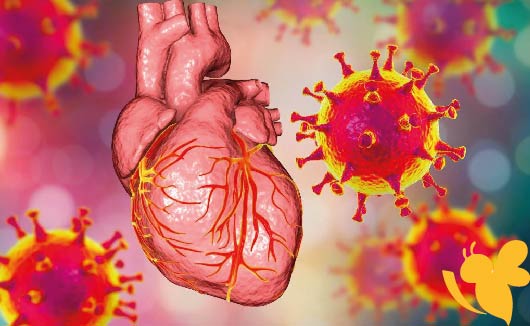The emergence of myocarditis and pericarditis as rare but serious adverse events following COVID-19 vaccination has prompted extensive investigation into their underlying genetic mechanisms. A genome-wide association study (GWAS) conducted by Wadelius utilized the SWEDEGENE-COVID19 cohort, comprising 890 individuals with adverse events post-immunization. This research specifically targeted a sub-cohort diagnosed with myocarditis or pericarditis, revealing a notable prevalence among young males within seven days after receiving the second mRNA vaccine dose. The study aimed to elucidate genetic and immunological factors that contribute to these conditions, leveraging comprehensive clinical data and blood samples from the Swedish national biobank .
Since the global rollout of COVID-19 vaccines, billions of doses have been administered to control the pandemic. While most side effects are mild, a small number of people, especially young males, have experienced heart inflammation, specifically myocarditis or pericarditis, shortly after receiving an mRNA vaccine. These conditions involve inflammation of the heart muscle or the surrounding sac, typically appearing within a week of the second dose.
Current research suggests that these rare reactions may be linked to how the immune system responds to the vaccine, especially the spike protein of the virus. However, the exact biological mechanisms remain unclear. Factors such as age, sex hormones, and pre-existing immune conditions have been proposed as contributors, but no clear genetic explanation has been confirmed.
Most AEFIs linked to COVID-19 vaccines are mild and self-limiting, such as fatigue, headache, myalgia, fever, chills, and joint pain, while moderately severe allergic reactions have also been reported. Severe AEFIs are exceedingly rare, but include several notable conditions such as myocarditis and pericarditis3, thrombocytopenia, thromboembolism4, neurological disorders5, and anaphylaxis. In particular, public concern has focused on myocarditis and pericarditis after mRNA vaccination that disproportionately developed among young males (aged 16 years and older) within 7 days of the second dose6. Myocarditis following vaccination could be associated with both innate and adaptive immune response to the SARS-CoV-2 Spike glycoprotein, but also with the direct impact of the mRNA administered by the vaccine7. The higher incidence among young men suggests that sex hormones and genetic differences may play a role6. However, the pathogenic mechanism remains poorly understood, making it crucial to investigate underlying patient characteristics to develop preventive and therapeutic methods.
Furthermore, Susha's study on adolescents in Hong Kong examined whole-genome sequencing data from those experiencing myocarditis following BNT162b2 vaccination compared to healthy controls. By identifying over 2,000 genomic regions potentially linked to cardiac issues and highlighting pathways related to cardiac function and ion channel activity, this research underscores the necessity for larger-scale studies to validate these findings. Collectively, these investigations illuminate critical genetic factors associated with post-COVID-19 vaccination myocarditis and pericarditis while emphasizing the need for continued exploration in this domain.
Read more
Pacers script series-clinching win, advance to East finals over Cavs 114-105 Samsung unveils slimmer smartphone, challenging AppleSarah H
Also on site :
- First measles case in Wyoming in 15 years confirmed in Casper
- MRI Technology Reads Brain’s Hidden Timer, Offers Early Warning for Dementia
- Donkey Kong Bananza Might Be the Blockbuster Title Switch 2 Needs

